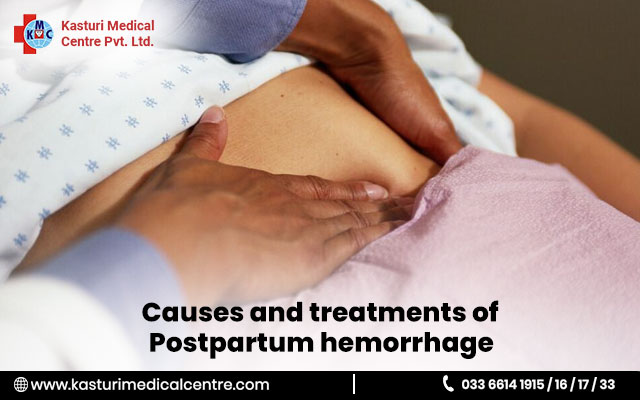Causes and treatments of Postpartum hemorrhage
Postpartum hemorrhage, a severe form of bleeding after childbirth, is one such complication that requires prompt attention and intervention. Understanding the causes and treatments of postpartum hemorrhage is crucial for ensuring the health and well-being of both mother and child. Learn more about it from the doctors of the best super speciality hospital in South Kolkata.
Causes of Postpartum Hemorrhage
- Uterine Atony: This is the most common cause of postpartum hemorrhage, occurring when the muscles of the uterus fail to contract effectively after childbirth. Factors such as prolonged labor, a large baby, multiple pregnancies or over-distention of the uterus can contribute to uterine atony.
- Tear or Injury: Tears or lacerations in the birth canal, cervix or perineum can lead to excessive bleeding postpartum. This may occur spontaneously during childbirth or as a result of medical interventions such as forceps or vacuum-assisted delivery.
- Retained Placental Tissue: As per the best gynaecologist in South Kolkata, failure to deliver the placenta or incomplete removal of placental fragments can result in postpartum hemorrhage. Retained placental tissue prevents the uterus from contracting properly, leading to persistent bleeding.
- Uterine Inversion: In rare cases, the uterus may turn inside out (uterine inversion) during or after childbirth, causing severe bleeding. This life-threatening complication requires immediate medical attention.
- Blood Clotting Disorders: Certain medical conditions or medications can interfere with the body’s ability to form blood clots, increasing the risk of postpartum hemorrhage.
Treatments for Postpartum Hemorrhage
- Uterine Massage: In cases of uterine atony, gentle massage of the uterus helps stimulate contractions and control bleeding. This may be combined with medications to enhance uterine tone.
- Manual Removal of Placenta: If the placenta is retained or incomplete, manual removal may be necessary to prevent further bleeding. This procedure is performed under sterile conditions by a doctor.
- Surgical Interventions: In severe cases of postpartum hemorrhage that do not respond to conservative measures, surgical interventions may be required. This may include procedures such as uterine artery embolization, compression sutures or even hysterectomy as a last resort.
- Blood Transfusion: In cases of significant blood loss, transfusion of packed red blood cells, platelets or clotting factors may be necessary to replace lost blood volume and restore hemostasis.
- Fluid Replacement: Intravenous fluids may be administered to maintain hydration and support circulation during active bleeding.
Postpartum hemorrhage is a serious complication of childbirth that requires prompt recognition and intervention. By understanding the causes and treatment options for postpartum hemorrhage, the best doctors at the super speciality hospital in South Kolkata can work collaboratively to ensure the best possible outcomes for mothers and their newborns.

